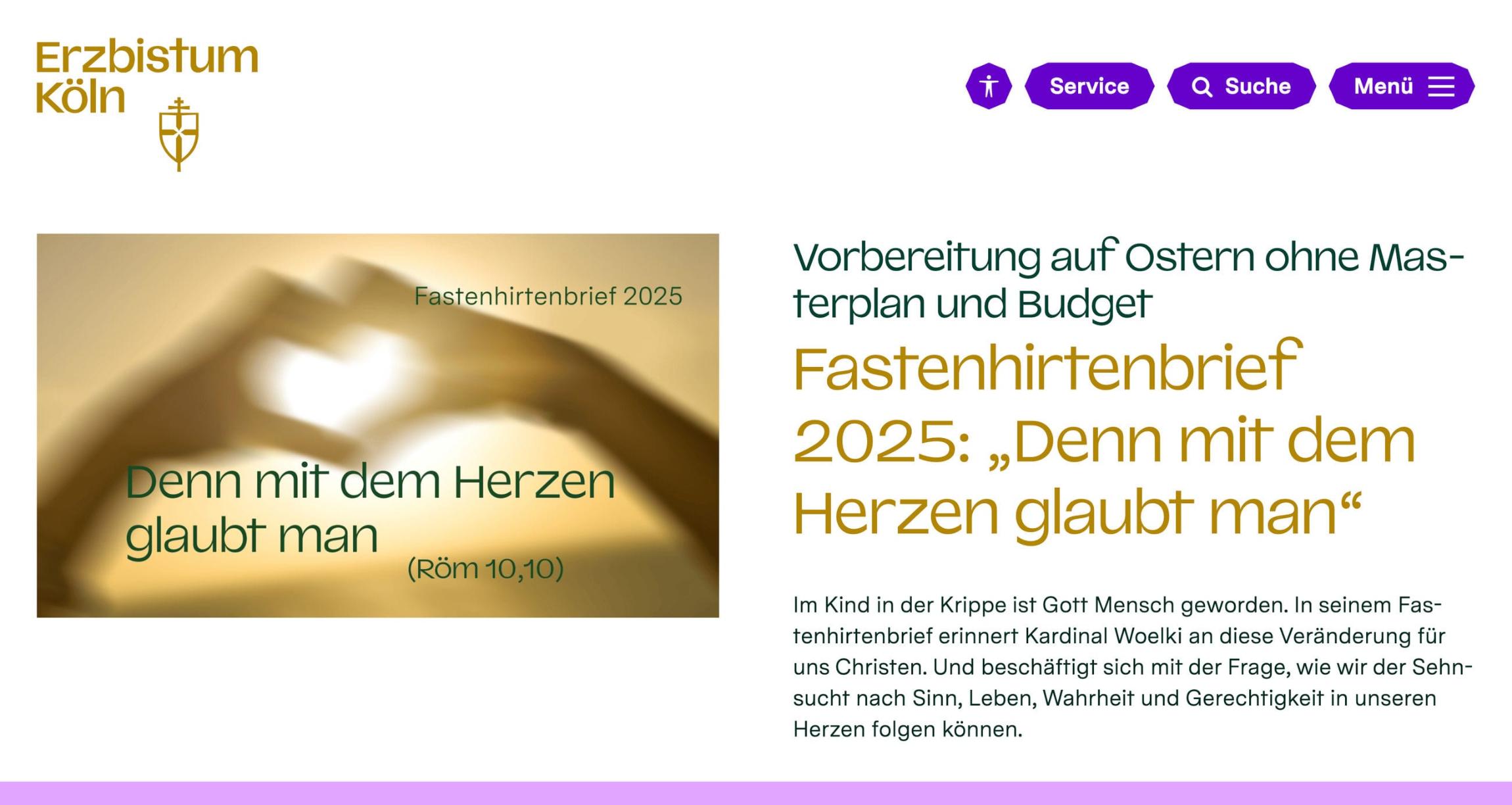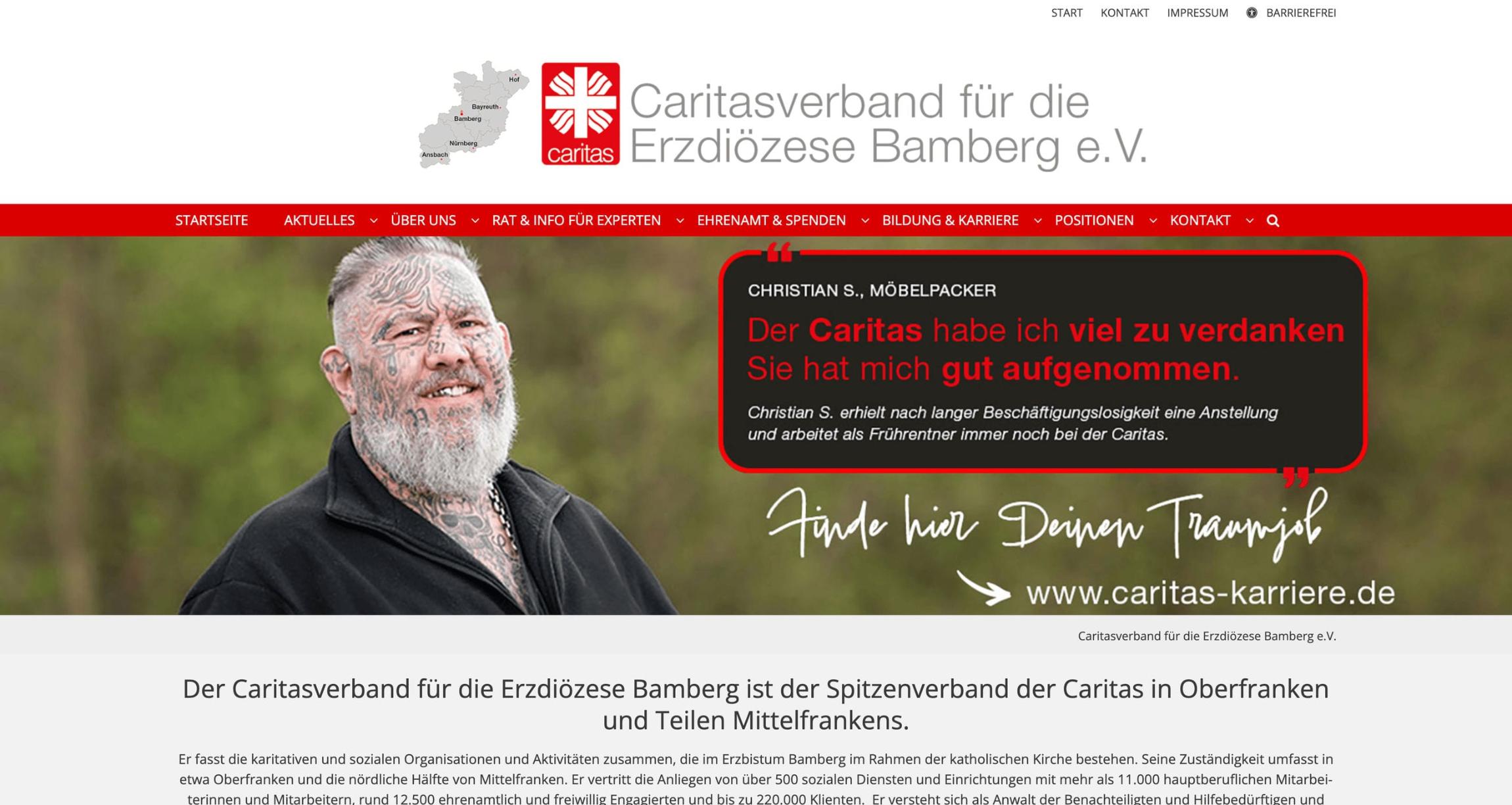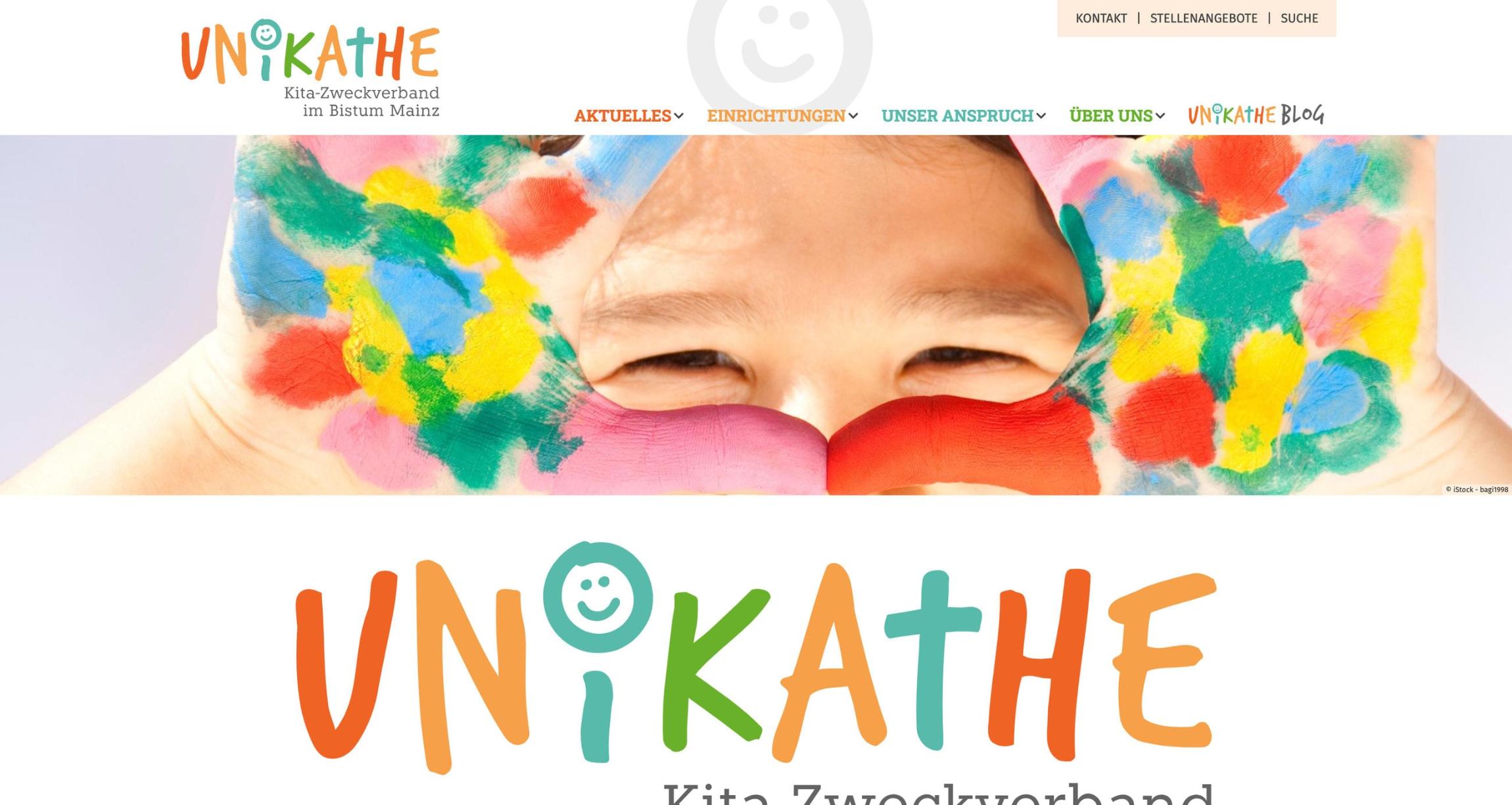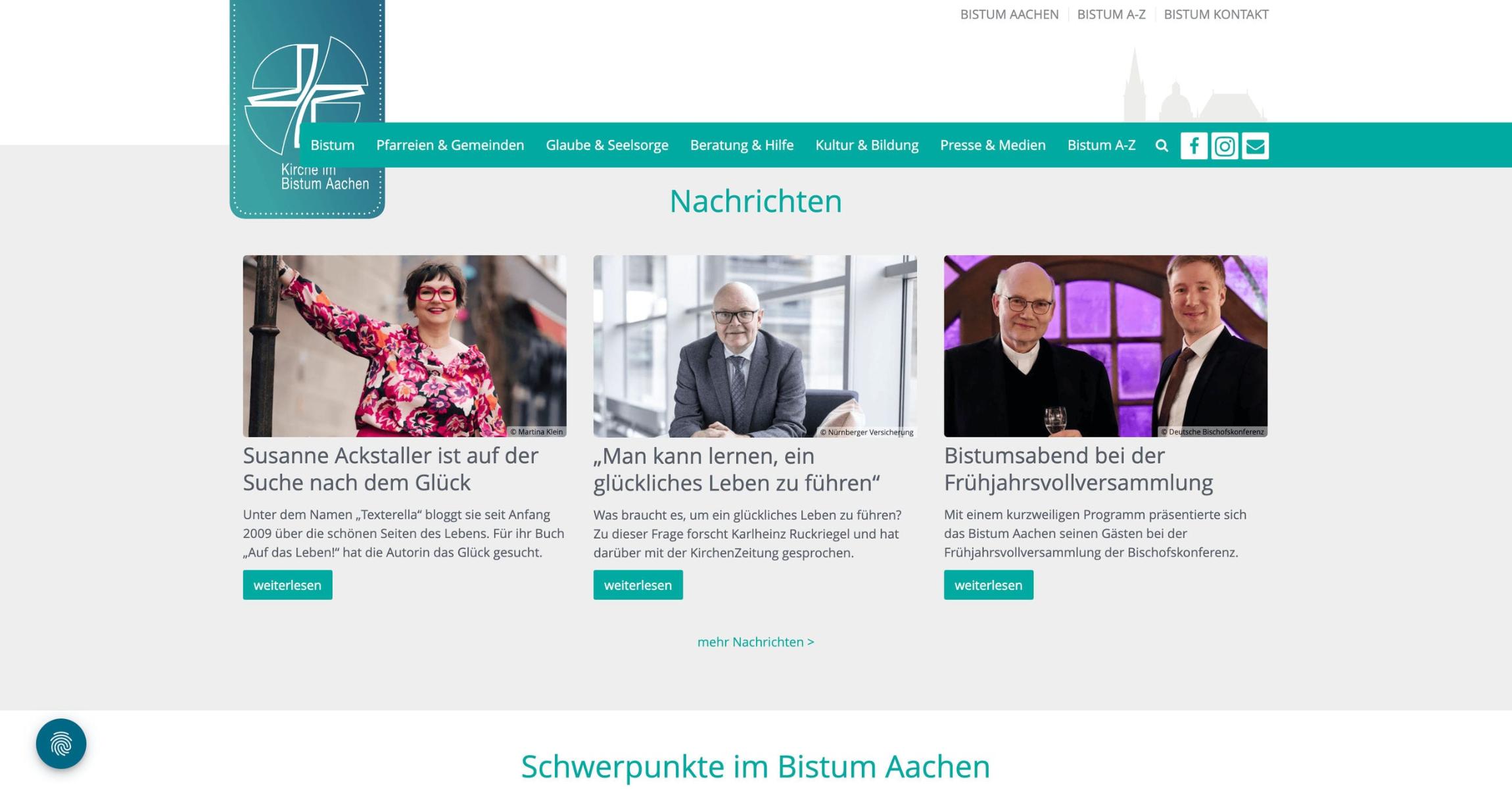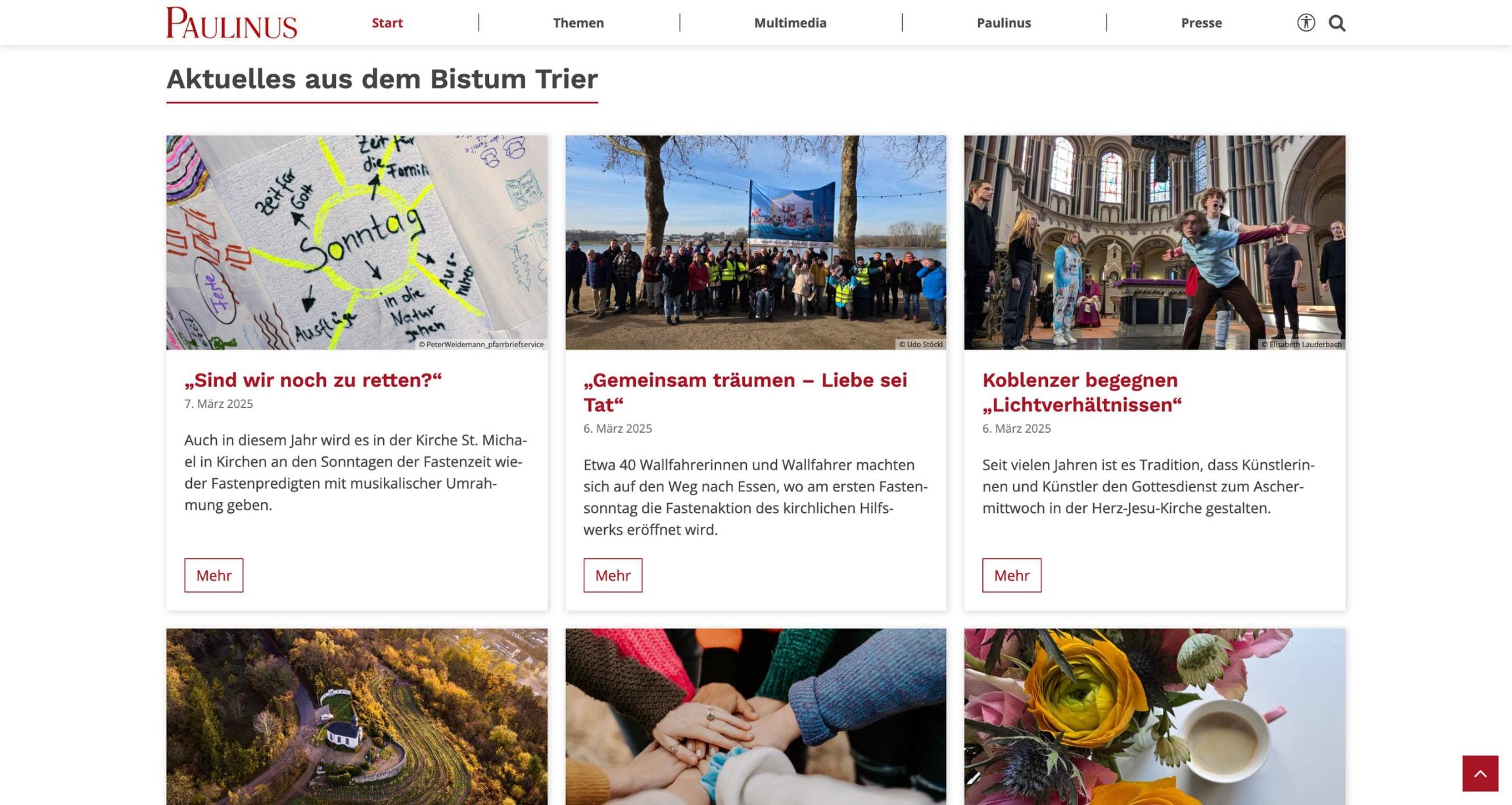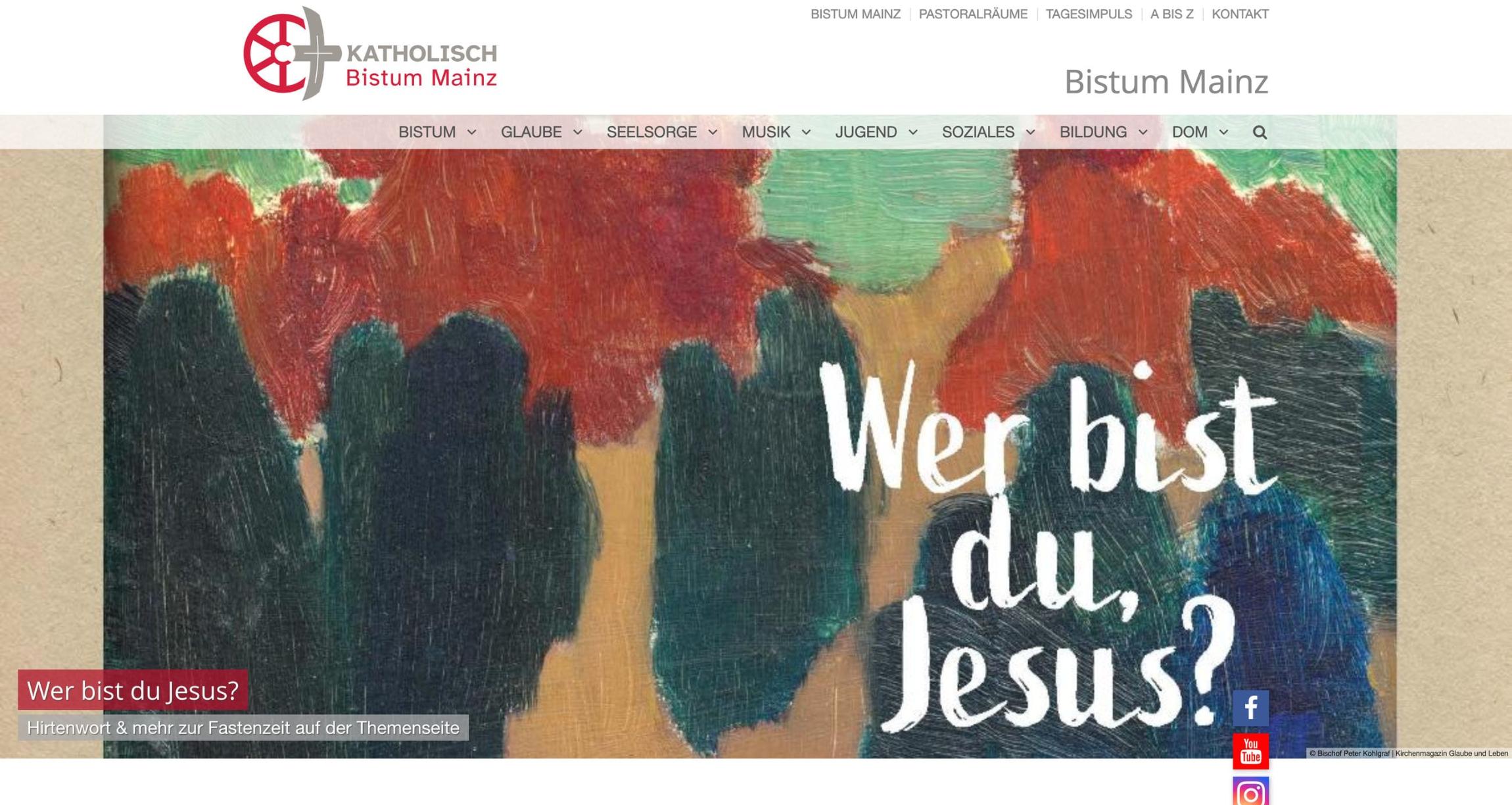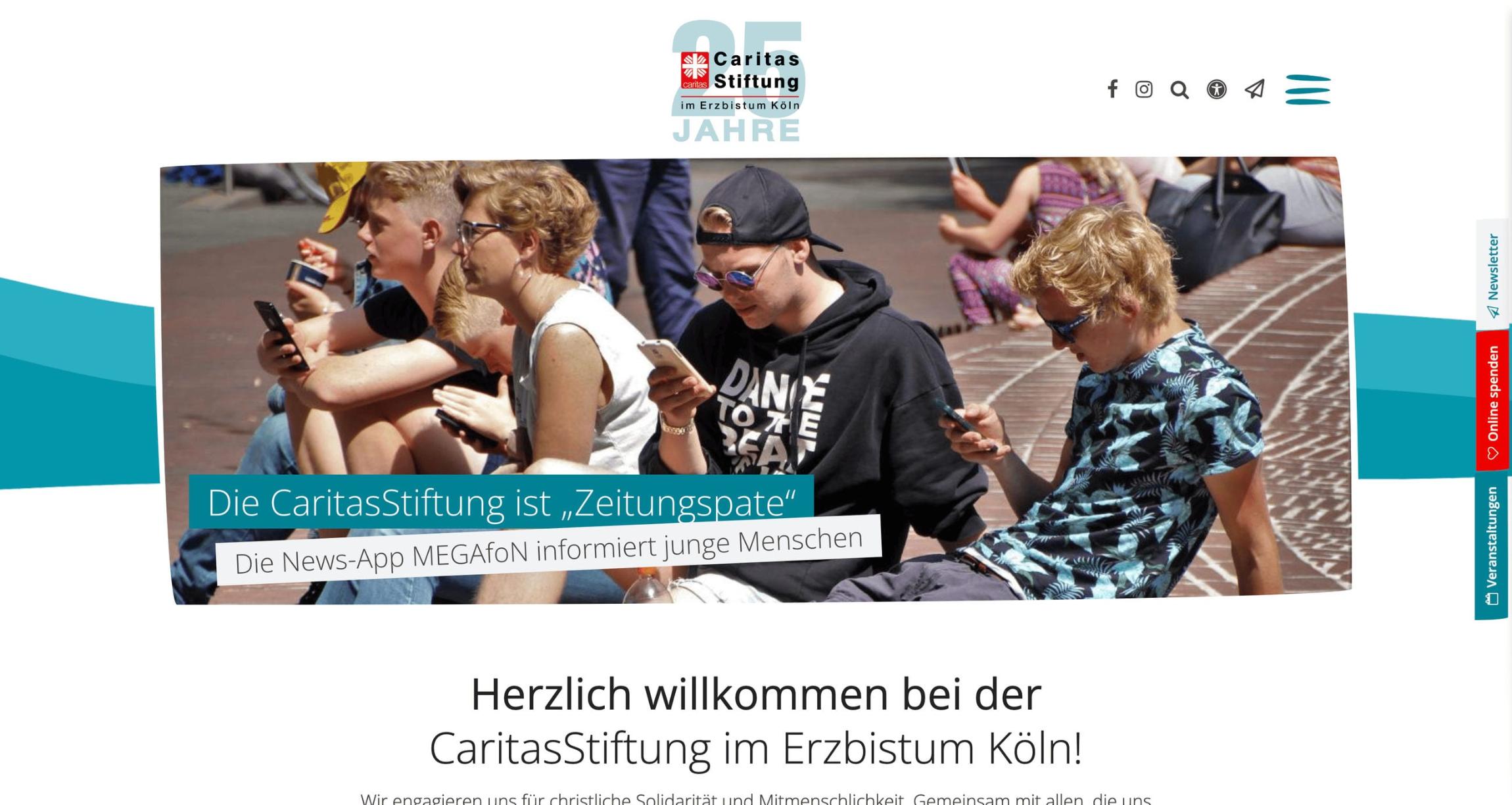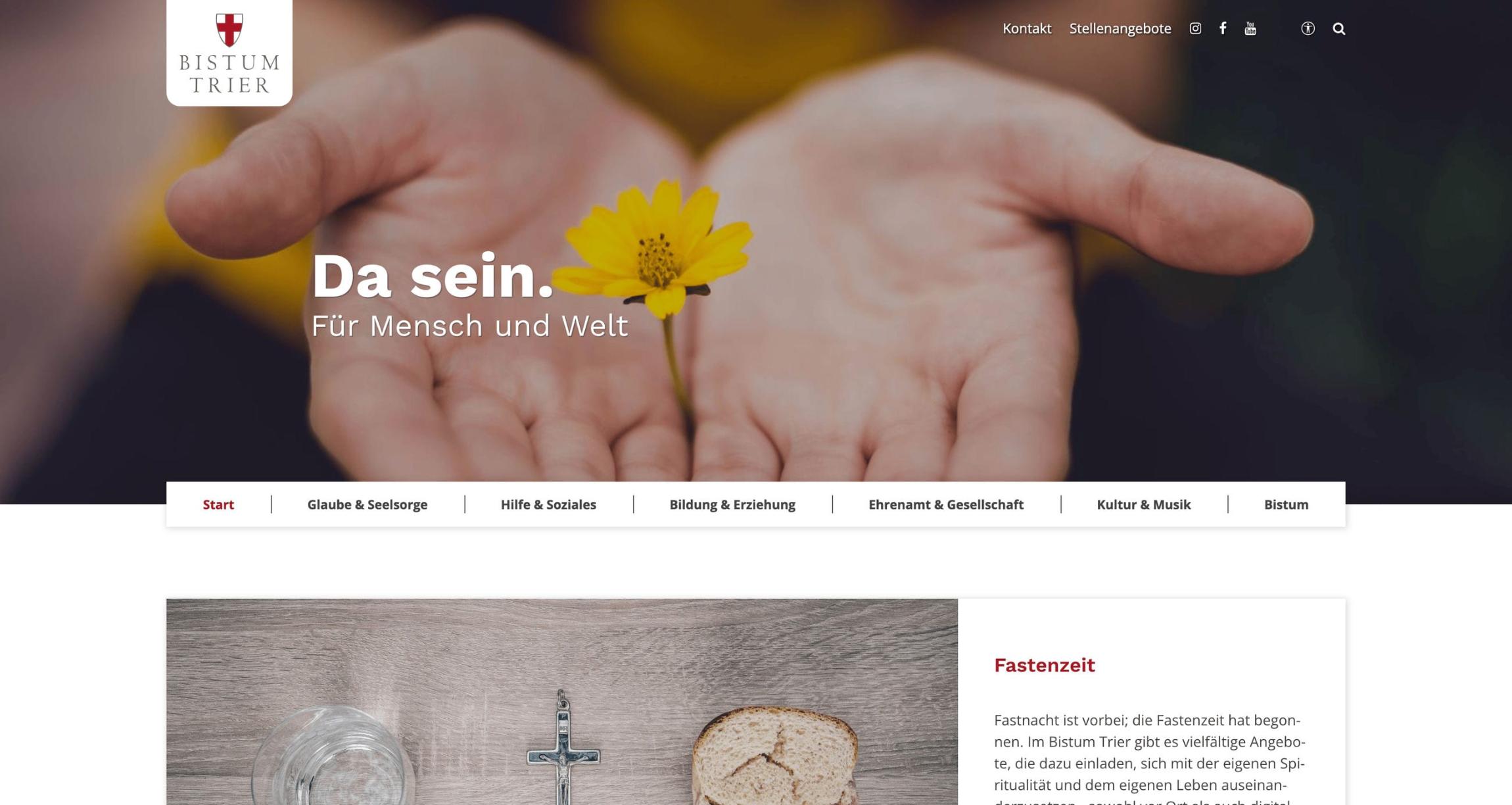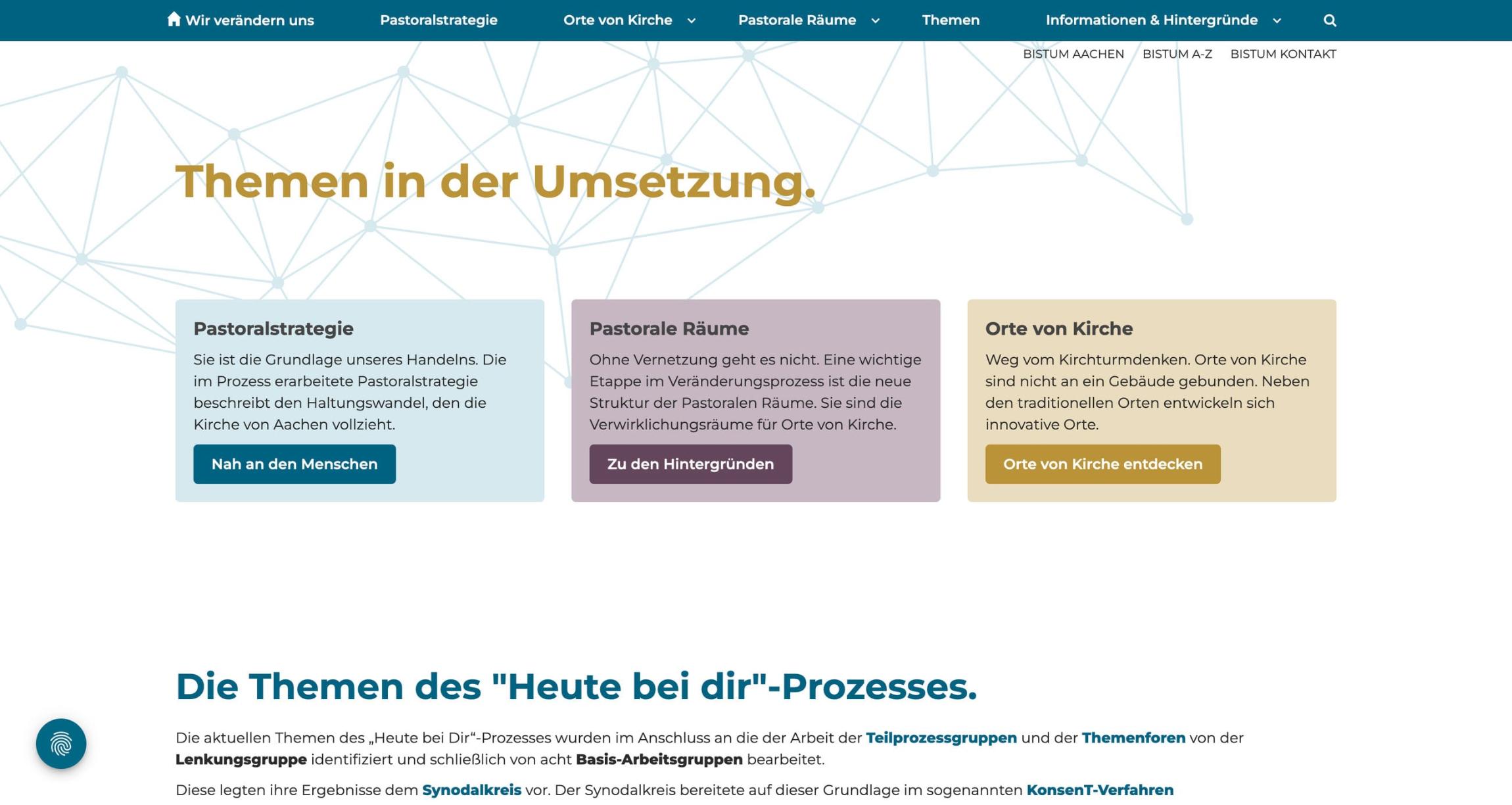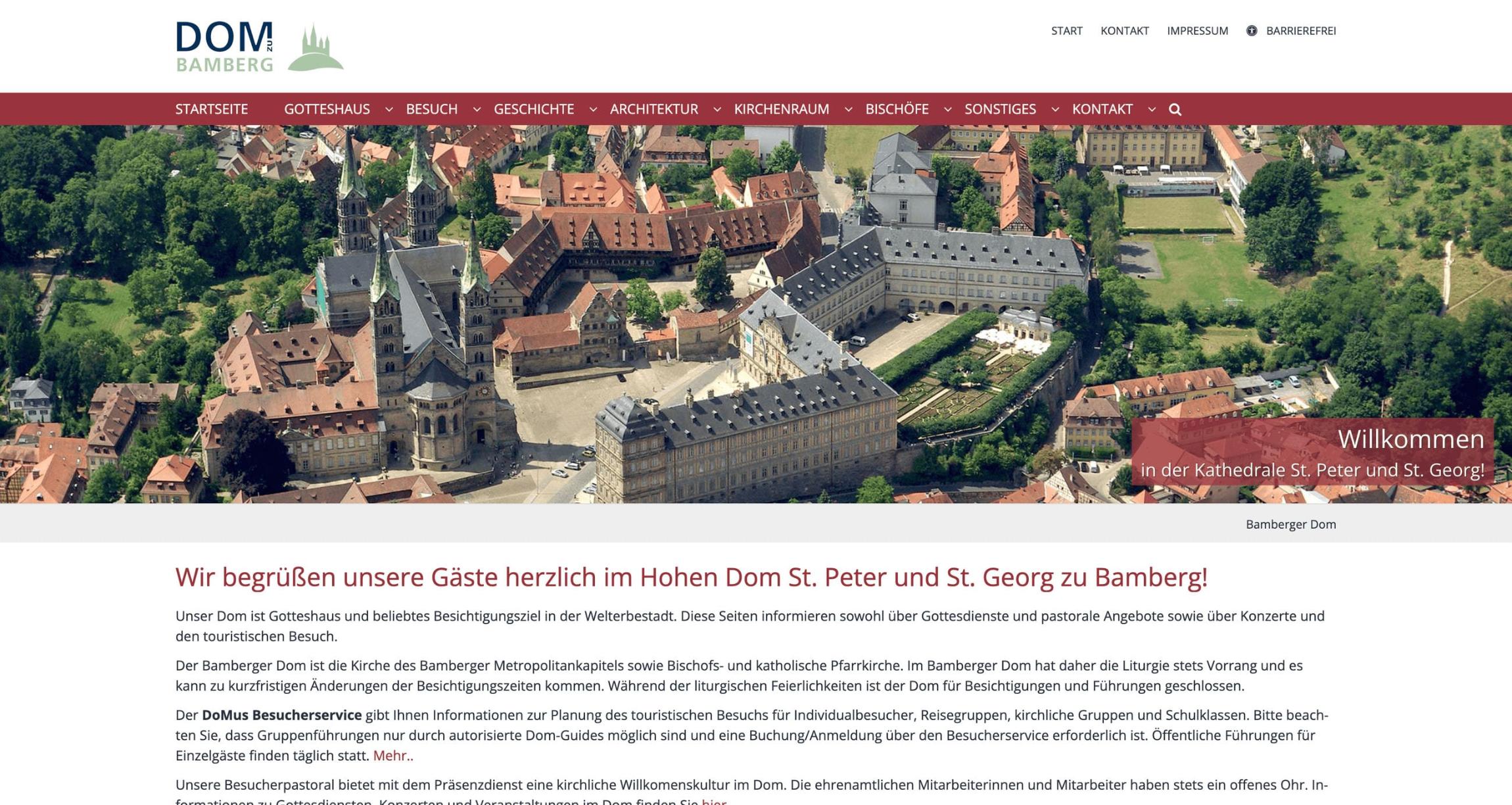OpenCms platform for catholic dioceses
Thanks to the clear permission structure and the option to create individual designs, the different websites in a diocese can be managed efficiently. At the same time, all participating dioceses benefit from joint further development and ongoing dialogue. The result is a solution that meets individual needs, offers innovative functions and can be seamlessly integrated into the day-to-day work of employees and honorary staff.
Websites created with the OpenCms platform
We especially like the ability to create a wide variety of designs. Thanks to different themes, our youth and senior ministries now run on visually distinct yet technically uniform websites.
Johannes S., counselor in youth pastoral care
Broad spectrum of ecclesiastical requirements
The information offered by Catholic dioceses today covers a wide range of websites and online platforms. These include websites for parishes, kindergartens, libraries, educational institutions and special pastoral care services. Behind each of these websites are often very different institutions within a diocese, each of which is responsible for editorial support. Voluntary work is often also involved in this work.
Against this background, there are special requirements for the structure, design and functions of the individual websites. The range extends from websites with a common appearance that clearly assigns all subpages to a diocese to individually designed sites that are intended to stand out from the rest.
With OpenCms I can edit content directly in the page view - it's super intuitive and motivates me to post new articles more often.
Anita R., honorary editor
Joint sharing of costs and further development
Together with the dioceses of Cologne, Aachen, Bamberg, Mainz and Trier, Alkacon Software has developed a platform based on OpenCms with the Mercury template that is specifically tailored to these needs.
During development, there was close cooperation with the dioceses so that a wide variety of aspects could be taken into account. Although all dioceses are built on the same basic framework (OpenCms with Mercury template), each has its own server with individual customizations and extensions. These relate to special functions as well as templates that are adapted to the respective target groups and structures of a diocese. This ensures that each diocese receives a system that is individually tailored to its needs.
For the five dioceses involved, the OpenCms platform is particularly attractive from an economic point of view. As the dioceses join forces and share the costs for further development, the financial outlay for each one of them is reduced. At the same time, everyone benefits from the joint exchange of ideas and can also implement larger projects cost-effectively.
The further development of the system is a continuous process that takes place in close cooperation with the dioceses. Alkacon provides new functions and updates on a quarterly basis, which include regular enhancements to the OpenCms core as well as the Mercury template. In addition, all server components are updated and security updates are installed.
From church services with a directorium to sending newsletters or planning events - the modules in OpenCms cover practically all church related requirements.
Stefan K., Pastoral employee
Central management and administration
One insight that many dioceses have gained from practical experience is that it is advisable not to distribute websites across numerous different, independent systems that differ greatly in terms of operation and administration.
OpenCms can host hundreds of websites in one installation. New websites can be created quickly by the central administration of the respective diocese. This always retains control and ensures uniform standards, for example for the legal notice, the use of images and data protection for forms. The clearly regulated permission structure of OpenCms enables coordination from the administrator to the website manager to the simple editor.
We used to have different systems in each parish and had to constantly worry about keeping them up to date with updates. With OpenCms, we now have everything clearly organized in one place. This not only saves us nerves, but also money.
Wolfgang T., IT manager of a diocese
Simple handling, flexible design options
An editorial platform that is also used by volunteers requires a particularly user-friendly interface. OpenCms offers intuitive WYSIWYG editing (What You See Is What You Get) and drag & drop functions. Changes can be made and saved directly on the page, making the editing process much easier and motivating at the same time. Editors can see their progress immediately without having to go through complicated work routines or learn programming skills.
The Mercury template offers a high degree of flexibility. The design of an individual website can be easily varied without the need for a programmer. The integrated theme generator makes it possible to optionally adapt colors and fonts to further optimize the unique appearance of a website. This is particularly useful when specific web content - for example, for youth or senior citizen work - is deliberately designed to stand out visually from the main website. At the same time, the technical principles and operating concepts remain consistent so that staff training can be carried out efficiently.
The transparent permission structure of OpenCms is just brilliant. It allows us to bring volunteer editors on board safely and easily without losing track of who is doing what.
Maria M., public relations coordinator
Extensive functionality
Modules for the planning and communication of church services are specially tailored to the needs of church institutions. A calendar can be linked to the directorium, name days and daily readings so that liturgy and scheduling go hand in hand. In addition, other modules such as the Storyteller can be used to create appealing landing pages. An interactive quiz is available for playful interaction. Large hierarchical structures can be visualized with the integrated organigram.
There are also modules for integrating external services such as Bynder, Churchdesk, Ingenius, Intentio, Kufer and Aufwind. This means that courses, events and church services offered by external providers can also be integrated into websites created with OpenCms.
The integrated newsletter module is also of great value to dioceses. It allows subscribers to be easily managed and informed at regular intervals. Content that has been created for the website can be transferred directly to newsletters, which reduces the editorial workload. Whether it's a parish newsletter, an event mailing or information on educational offers - the newsletter module provides all the tools needed to reach people digitally and keep them up to date on current topics.
